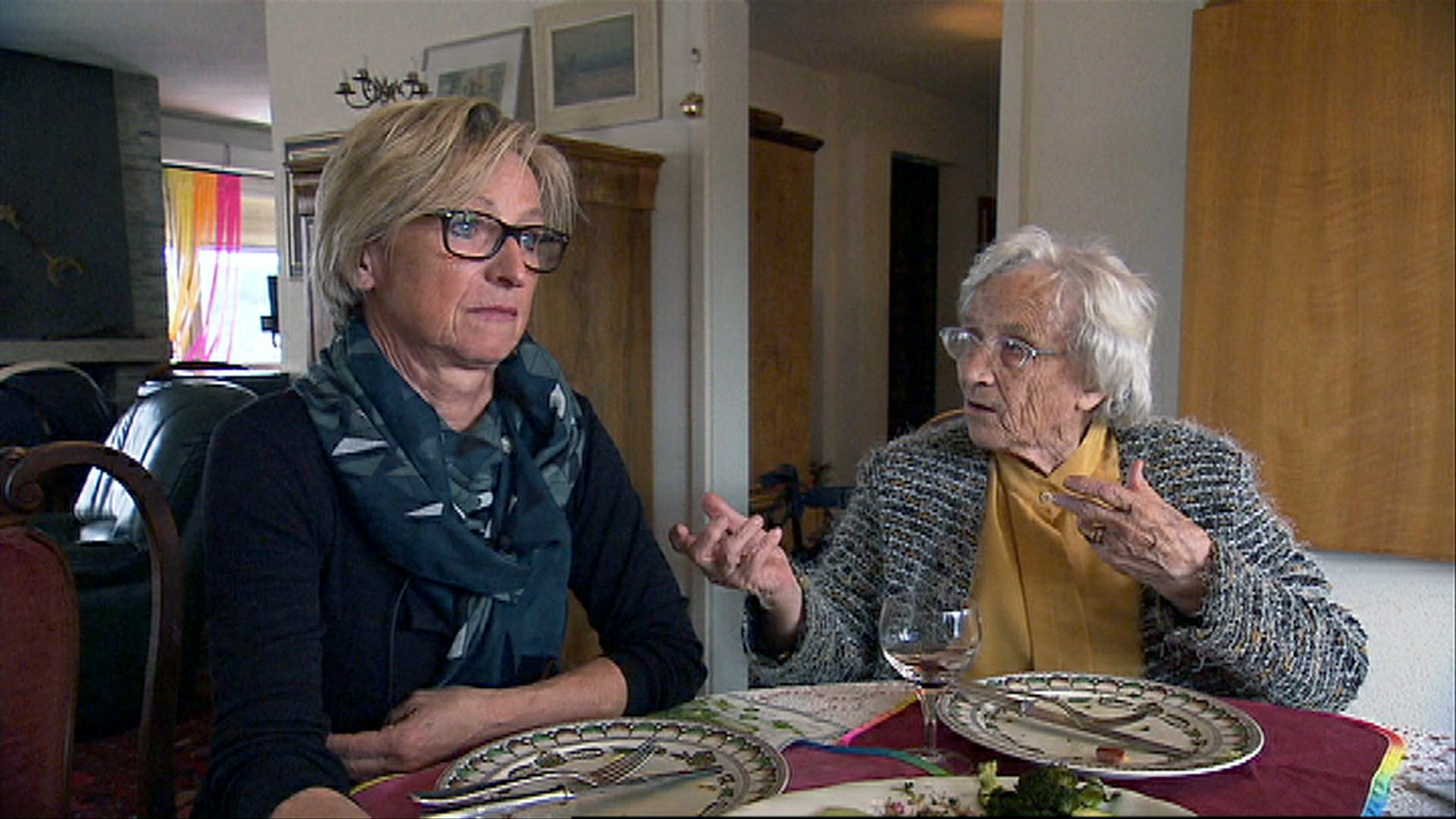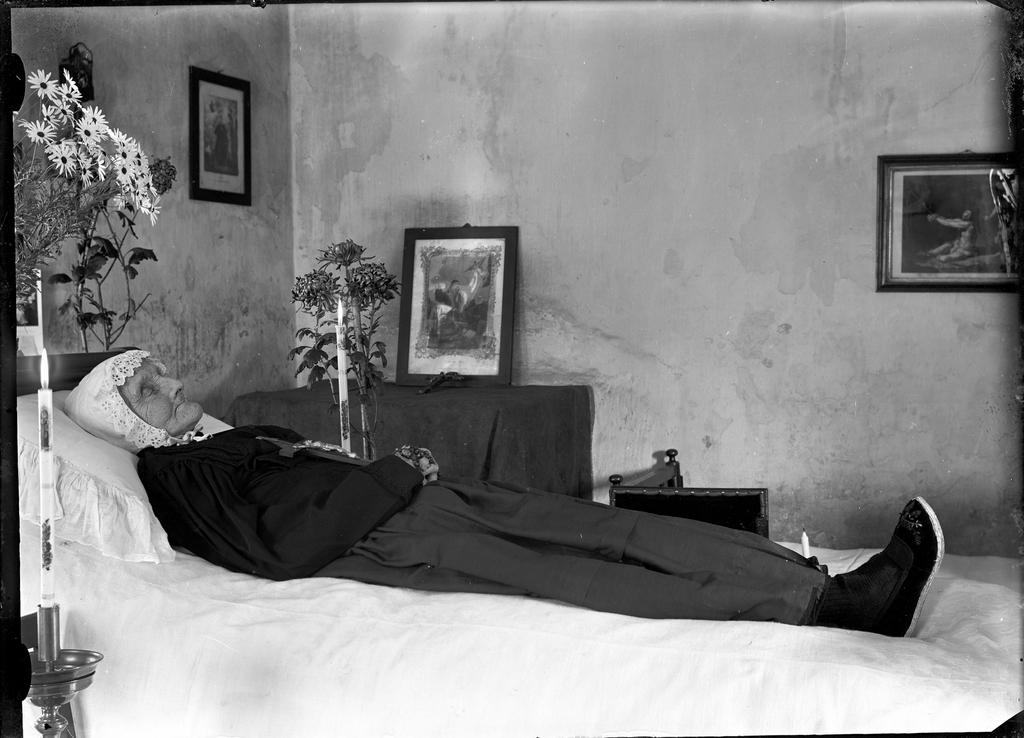Swiss await fallout of German assisted suicide laws

Erika Preisig lives about ten minutes’ walk from the German border. But as of next year she may not be able to go to Germany ever again. Preisig runs Lifecircle, one of the Swiss assisted suicide associations that could be affected by German laws being debated next month - laws that would make her work illegal.
Switzerland is the only country that helps non-residents to die. By far the biggest number of foreigners coming to Switzerland to end their life are people from Germany and the United Kingdom.
Both countries have been grappling with their own assisted suicide legislation this year. In September, the British parliament rejected a moveExternal link to make it legal for the terminally ill. Germany is debating four bills on the issue and politicians look set to pass strict assisted suicide laws that will mean any association helping Germans to die – inside and outside the country – will be committing a criminal offence.
Swiss associations are keenly observing the outcomes, knowing it will have an impact on the services they provide.
German legal changes
Four bills go before Germany’s parliament in November. A bill by Michael Brand, of the Christian Democratic Union and Kerstin GrieseExternal link, of the Social Democratic Party, has the backing of Chancellor Angel Merkel. It would be illegal for anyone to offer assisted suicide for a fee.
Renate Künast of the Greens and Petra Sitte of the Left party put forward a billExternal link which would remove legal hurdles to assisted suicide and give the right to die to any responsible adult who has been counselled by a doctor. Associations like Dignitas would be allowed to operate in Germany.
A billExternal link by Patrick Sensburg of the Christian Democrats would bring in a total ban on assisted suicide.
A fourth billExternal link by Parliament Vice President Peter Hintze and Social Democrat Carola Reimann would allow doctors to carry out assisted suicide under certain conditions, including an “incurable disease”.
(Source: Der Spiegel, Deutsches Referenzzentrum für Ethik in den Biowissenschaften)
Preisig helped 13 Germans and three Britons to die in 2014. Softly spoken with long braided hair, she wells up when talking about her first encounter with assisted suicide. Two strokes left her father unable to speak or read; he attempted to kill himself with pills but failed. When he said he would try again by throwing himself under a train, she said she would look at alternatives. The Swiss assisted suicide association Dignitas accepted him.
“When someone has palliative care dying, so often they are not conscious in the last few days of their life. But with assisted dying, my father was sitting beside me. He decided ‘I want to die now’ and he put his head on my shoulder and fell asleep,” she says.
It was a turning point for Preisig. A doctor, she eventually went to work for Dignitas. A few years later she decided to branch out on her own, setting up her twin associations of LifecircleExternal link and Eternal Spirit. Lifecircle to promote palliative care and Eternal Spirit for assisted suicide.
Both approaches are important, she says. Particularly in a culture where the elderly are often placed in nursing homes because their families don’t know how to care for them.
“In the nursing home you have nothing to do but sit around and wait for the next meal. And you wait to die. We have to make sure people don’t want to die because they are lonely and feel they are a burden and not producing anything anymore. We have to find other possibilities of keeping our elderly people in life.”
For those who do want to end their life with Lifecircle, they first must become a member and write a letter explaining why they want to die. After sending in doctor’s reports only then do they get invited for assessments by two doctors and the association board.
If approved, the deaths take place at an apartment in Basel. With its wooden walls, kitchen unit, CDs and brightly coloured furniture, it looks like a modern studio flat.

There they take 15 grams of sodium pentobarbital. They have to take the drug themselves. “It puts you into a deep, anaesthetic sleep. When you open the valve, it takes about 30 seconds and you fall asleep, like an anaesthetic, and within four minutes you have heart failure. Your heart stops beating. You die very, very easily,” Preisig says.
“I’m asked again and again whether I act like God, by saying you’re allowed to die, you’re not allowed to die. It’s not me who is deciding. I just have to make sure people have been thinking about it long enough.”
Assisted suicide has been possible in Switzerland since the 1940s. But why should Switzerland help people from other countries?
“As long as they cannot have assisted dying in their own countries Switzerland should welcome people,” Preisig argues. “But we should also try to help with the legalisation of assisted dying. I think Switzerland should do conventions, interviews, everything to show examples of why people want to die and why it should be accepted. Become a leader.”
Plan B
Suicide and assisted suicide haven’t been punishable in Germany since the 18th century. Of the four bills under discussion by the parliament (see infobox), Chancellor Angela Merkel has backed one with strict controls. It is aimed at associations that offer assisted suicide services and would see a three-year jail term for anyone who offers or mediates suicide “on business terms”.
Its proponent argue it is time to legislate to prevent “organised” assisted suicide becoming a “commercial business”.External link It would only allow “individual cases” of people assisting suicide for “altruistic motives”.
The law would put an end to organisations like Sterbehilfe DeutschlandExternal link. Modelled entirely on the Swiss organisation Exit, it assists with suicides in Germany and has an office in Zurich where it does paperwork and where it recruits Swiss volunteers to help with the dying process.
Founded almost six years ago by Roger Kusch, a former Christian Democratic Union politician known as “Dr Death”, Sterbehilfe Deutschland acknowledges they will have to “take a break” if the bill passes. Their Plan B will be to operate solely from Switzerland, if the law allows.
“In Switzerland the right to freedom is the highest principle of the entire state,” Kusch told swissinfo.ch. “Now it has gone so far that at the end of their lives Germans cannot decide for themselves whether they want to avail themselves of this. Such a development would be unthinkable in Switzerland.”
Kusch has said he will file a constitutional complaint if the law is passed.
Renate Künast leads the parliamentary committee for law and consumer protection in Germany and is co-author of a billExternal link advocating for assisted suicide to continue there with impunity.
“My fear is that the bill that wants to punish nearly every assisted suicide will succeed. What will be the result? The result could be more tourism to Switzerland. The result could be that people try to carry out their suicide in ways that are not proper and cause a lot of other different problems.”
Swiss repercussions
Even Exit, which does not offer assisted suicide for non-Swiss residents, is anxiously watching the developments in Germany.
Managing director Bernhard Sutter told swissinfo.ch: “It’s most probable that they will forbid it. And the question is what is going to happen in Switzerland after that. Because there are many German patients coming here to seek help. Can the Swiss still help them? We have Swiss members living in Germany. Are we still allowed to send them our newsletter?”

More
Who decides when it’s time to go?
Dignitas, the main Swiss association accepting foreigners, says the bill slated to win shows its backers are “out of touch” with the German people.
It would not comment on the outcome of the debate, but in an email, the association’s Silvan Luley said: “Dignitas’s aim is not that people from all over the world travel to Switzerland, but rather that other countries adapt their legal system to implement end-of-life-issues so that citizens have a real choice and do not need to become a ‘suicide tourist’.”
Preisig says even if a strict law comes into force in Germany, she will continue to help Germans.
“If I phone someone in Germany or help someone to come to Switzerland, I will not be able to go to Germany anymore. But I think for ethical reasons I would not be able to not accept German people any more. I do not understand why someone should be punished for helping a person to die in a decent way.”
In Germany, the favourite bill is seen to have received a boost from ethical and religious lobbies, including among Merkel’s Christian Democratic Union party. On the issue, the Council of the Evangelical Church in Germany says people should not have “options” to kill themselves at any time and that there are “better alternatives” in hospices or palliative care.
Preisig believes Germans will still keep coming to Switzerland to die, and their families will continue to help them, despite the fear of prosecution.
“There is a same law in England, in France, Italy. That they [whoever assists someone to commit suicide] might be punished by 14 years in prison. They come anyway.”
Preisig was catapulted into the British headlines this summer when British nurse Gill Pharaoh decided to die because she didn’t like the “natural deterioration” she was going through.
When the British parliament voted downExternal link a change on assisted suicide laws in September, Lifecircle had 25 new members overnight. Dignitas received an email soon afterwards saying “we will still need the benefits of your organisation so please do not change”.

More
Call for new assisted suicide debate is pointless
Both Exit and Dignitas say their long-term goal is, in fact, to close down once people can end their lives at home and their services would no longer be needed.
Better laws
In the meantime, with an ageing society, growing numbers of people are choosing to die via assisted suicide within Switzerland.
All the more reason, some say, to introduce Swiss laws on assisted suicide. Currently, the only restrictions are that a person must be of sound mind, take the drug themselves and cannot be influenced by anyone else.
The president of the Swiss medical association has said there needs to be new debate about a law. Former Zurich prosecutor Andreas Brunner agrees.
“At the beginning we had one organisation in Switzerland, and now we have five. It’s very important that with five organisations you have some standards. We have no law. That’s the problem. But it shouldn’t be a penal law like the Germans want to do.”
Exit and Lifecircle agree better legislation is needed.
“Exit has been saying this for a long time,” Sutter said. “But apparently the cabinet and parliament don’t want to legislate on this point because they see it as an individual thing and everyone has to do their own thing and so on. But we as the oldest organisation, which has given itself very strict rules, of course we don’t mind if there is legislation.”
In 2011, the government looked at various options to regulate assisted suicide and decided not to seek legal changes but to boost suicide prevention and palliative care.

In compliance with the JTI standards
More: SWI swissinfo.ch certified by the Journalism Trust Initiative













You can find an overview of ongoing debates with our journalists here . Please join us!
If you want to start a conversation about a topic raised in this article or want to report factual errors, email us at english@swissinfo.ch.